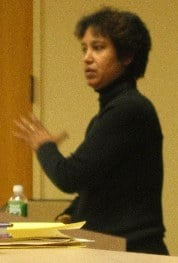In-Depth Coverage of Issues Concerning the Global Sikh Community Including Self-Determination, Democracy, Human Rights, Civil Liberties, Antiracism, Religion, and South Asian Geopolitics

Noorjahan's fractured forehead pours out blood, mine also
Noorjahan's eyes have burst, mine also
Noorjahan's nose has been smashed, mine also
Noorjahan's torn breast and heart have been pierced, mine also
Are these stones not striking you?
They laugh aloud, stroking their beards
Their tupis [caps] shaking with jubilation
As they swing their walking sticks
They with quivering and cruel eyes speed to pierce her body, mine too
Are these arrows not piercing your body?